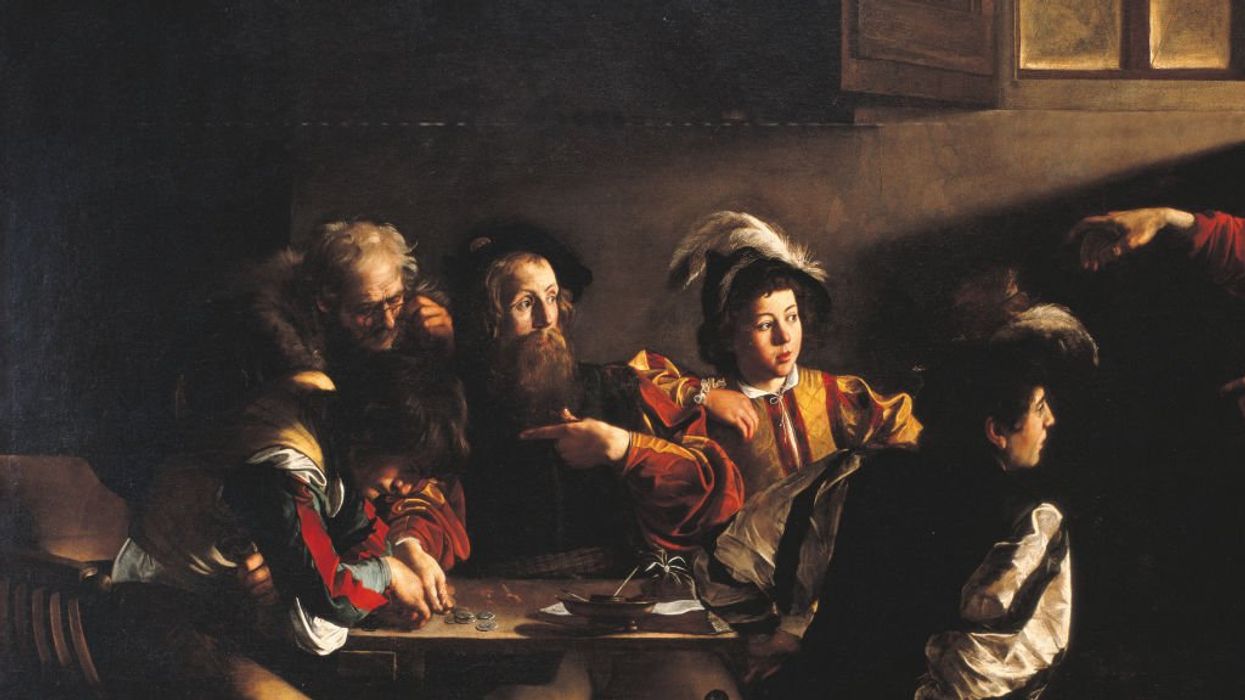
Getty Images/Mondadori Portfolio

Goth tattoo artist Kat Von D recently sat down with BlazeTV's Allie Beth Stuckey to discuss her conversion to Christianity (read our transcript here). And Muslim turned super-atheist Ayaan Hirsi Ali outed herself as a regular churchgoer, admitting that "Christianity has it all." Do celebrity conversions, like deaths, come in threes? If so, let's pray for Tom Cruise — can you imagine the sheer maniacal commitment he'd bring to a St. Paul or Fulton Sheen biopic?
What exactly does it mean to convert? Certain skeptical reactions to both Von D's and Ali's own conversions reveal we're not quite sure. Holier-than-thou evangelicals studied Von D's baptism video for evidence she wasn't sincere. And Andrew Sullivan couldn't resist a little tut-tutting over the pragmatic nature of Ali's turn to Christ:
All I can say, as a human being and friend, is that I’m thrilled Ayaan is on that journey, and will pray it continues for her, and that she will also come to see that those with the deepest faith never write essays about it, never declare themselves anything, and do not try to believe in order that Western civilization can endure.
Both of these criticisms rely on the common popular understanding of faith as something like falling in love. Belief in God is a feeling you have to catch, and the more you can put it into words, the less profound it is. There's some truth to this, but it hardly tells the whole story. The problem with being "on fire for Jesus" is that, like all honeymoon periods, it doesn't last. Neither does it hold up to scrutiny — thus all the "ex-vangelicals" abandoning the Son of Man like he was a bad boyfriend who didn't "meet their needs." Worse off are all the people taught to believe that God's supposed to do all the work; if He's real, he'll give you a sign.
Maybe that happens to some special people, but most of us have to grind because faith is also a matter of will. Christianity is either true or not; if it's true, then it encompasses everything that is true, from the Krebs cycle to the perfect fifth to why David Bowie's eyes were two different colors. "I'm not a religious person." You might as well say I'm not a "gravity person." The cliff won't care.
To the Christian believer, Christianity is simply reality. To reject God is to reject reality. The title of Frank Sheed's "Theology and Sanity" emphasizes this by combining two notions we don't often contemplate together. Religion in 2023 seems best understood as a personal preference or a lifestyle — what does sanity have to do with it? And yet Sheed's more than 75-year-old book offers a bracing reminder of what's really at stake in the question of faith: “To overlook God's presence is not simply to be irreligious: It is a kind of insanity, like overlooking anything else that is actually there. ... Sanity, remember, does not mean living in the same world as everyone else; it means living in the real world.”
Today, not only can't we agree on what's “actually there,” we can't even agree that it's possible — or desirable — to find out. What's especially troubling is how untroubled we are by this fundamental lack of consensus. The quiet, steady voice of sanity is easily drowned out in a culture in which intensity of feeling is the ultimate arbiter of what matters.
The divine is now something inside us. Our only obligation is to recognize and develop it. (Just don’t examine too closely where we get our sense of good and evil.) But as Helen Andrews points out in her 2014 essay “AA Envy,” there is one redoubt in American culture where God still holds us accountable. The recovering alcoholic does have at least one commandment he must obey: Don’t drink. And yet, hard experience has shown that sheer willpower is not enough; the alcoholic must surrender to something greater than himself. Admitting that you pray to God in some circles will be greeted with bemusement — if not derision. Replace “God” with “Higher Power,” however, and even the most sneering atheist will give you a pass. Andrews finishes the article by imagining the fellowship of AA extending to all people as a kind of “Sinners Anonymous,” with “the lost children of the post-religious world realizing that the very things that inspire such longing when glimpsed through church basement windows can also be found one floor up.”
Those in recovery often talk of having been given “the gift of desperation.” Our situation, born only to die, is nothing if not desperate. Even the staunchest materialists among us will concede the value of some kind of “spirituality,” if only metaphorical, when it comes to saying goodbye to our dead. What would an honestly atheist funeral look like? It might include a reading of Philip Larkin's beautiful, utterly bleak poem “Aubade,” which expresses “the sure extinction that we travel to” with breathtaking bluntness. Larkin mercilessly dismisses any methods of managing our terror, including religion, “that vast, moth-eaten musical brocade / Created to pretend we never die.”
But one wonders if Larkin ever investigated the matter seriously; existential despair can be just as tempting an escape from reality as blind faith. Philosopher and Catholic apologist Peter Kreeft has compiled a rigorous and readable summary of “Twenty Arguments” for the existence of God. Reading it is essential for anyone seeking clarity on a question that has been clouded by puerile appeals to emotion and politics on both sides.